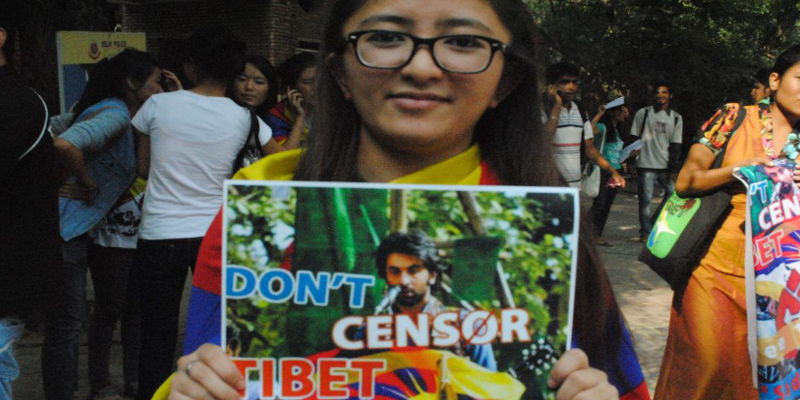From the account of China’s censorship implemented by the communist regime in the past year, it is being concluded that ‘Tibet’ is one of the most censored search keywords imposed by the regime. According to the report from Freedom House, China is ranked at the top of worst abuser of the internet freedom in the past year and it accounts to this very reason.
According to the official report in the website of Central Tibetan Administration, the three T’s account to the most censored keywords imposed by the Chinese government across its territories and the three T’s stand for Tibet, Taiwan and Tiananmen.
“Any information that China deem as sensitive, subversive and seditious are blocked. In addition to sophisticated technology in place, 2 million cyber police are deployed to “purify the internet”. Their role, of internet purification, includes monitoring, blocking and removing contents that are critical of the communist party and the Chinese government by using keyword searches constantly. China’s biggest taboos- the Three Ts: Tibet, Taiwan and Tiananmen Square- are enlisted among sensitive keyword search phrases.” explained the official report on Monday.
According to the recent instances, Multinational Companies such as Marriott International, Delta Airlines and ZARA, etc., were even not spared for their mentioning of Tibet, Taiwan as territorial names to carry out their surveys and customer managements while dealing in China.
While the websites of Marriott International in China was suspended, other foreign companies have been warned by the regulators to carry out thorough review of their databases and correct the ‘mistakes’ mentioning Tibet, Taiwan etc., as separate entities; so that these companies do not make the mistake in the future.
In Tibet, a number of Tibetans have faced arrest and sentence for sharing information over the internet according to the report.
“In February 2016, a prominent Tibetan blogger, Druklo, popularly known by his pen name: Shokjang, was given a three-year imprisonment term. Shokjang was accused of “inciting separatism” and “causing instability” for writing about the heavy military presence and crackdown on Tibetans in his town Rebkong. He had shared the images on WeChat, a popular Chinese messaging app widely used by Tibetans inside and outside Tibet.” added the report.

